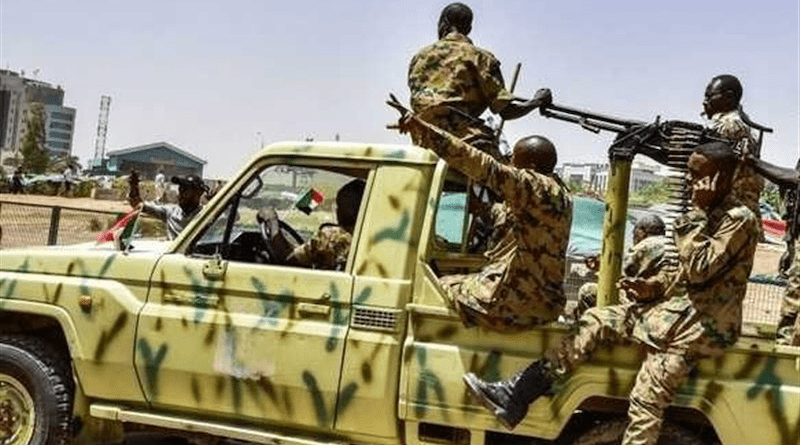Sudan Crisis Holds Real Danger For Arab, North Africa And Sahel Nations – OpEd
By Arab News
By Dr. Mohammed Al-Sulami*
It has been somewhat inevitable that Sudan’s geopolitical position has seen the crisis in that country spill over into the region including the Sahel and North African countries. These nations are not immune to the ongoing conflict, especially considering their shared Arab cultural and political bonds.
The danger now posed by the potential mirroring of the Sudanese crisis in North African countries has become of utmost concern to other Arab nations. This realization is growing especially among those who thought that any type of regional fallout would see them remain unscathed — which was based on the rather erroneous notion that they had escaped the waves of protests of 2011 and 2018. In reality, not a single country has been spared from those uprisings.
And so it is also that the Sudanese crisis will certainly send shockwaves reverberating through the region. The conclusion should be avoided that Sudan’s crisis and outcome would be different because of the supposed dissimilarity in context and parties involved.
The situation in Libya is one of the most troubling, given that the country is mired in a struggle for power between east and west; and considering that the warring factions have complex ties to the parties involved in Sudan’s crisis.
Of second-most concern is the potential effect on the political situation in Chad and the consequent security and humanitarian problems likely for other Sahel nations including Mali and Niger. The Chadian government is perhaps rightly concerned that armed opposition forces in their country could seek some form of alliances with Sudan’s Rapid Support Forces.
The increasing political vulnerability of Chad and Libya could see the possibility of foreign military intervention that may cause further problems. Such turbulence offers fertile ground for terror groups, enabling them to move freely throughout the Sahel region. These groups were emboldened by the 2011 protests, and the subsequent lack of security throughout the region. It is perhaps obvious to point out that relatively improved security in the region following the Arab Spring protests, saw a consequent decline in the activities of various terror groups.
Sudan’s crisis may also see terror groups increase their activities in the border regions between Tunisia and Algeria. These groups are entrenched in Tunisia’s Chaambi Mountains and all along the Algerian-Libyan border areas up to northern Mali. In such circumstances, the likelihood increases of an attack, like the one in 2013, which targeted a military base in Algeria’s Tiguentourine region.
The attackers’ launching pad for that operation was the border area between Niger and Libya, with the terror group citing France’s military intervention in Mali as supposed justification. Algeria has rightly reiterated that there needs to be a solution to the crisis in Sudan that would avoid any foreign military intervention, which it considers one of the primary reasons for the intensification of various crises in the region.
In addition, North African countries fear the security threats posed by illegal immigration, asylum-seekers and organized crime in all its forms since these countries are on the southern flank of the Mediterranean from which boats carrying illegal immigrants set sail toward Europe. In recent years, there has been a spike in the number of asylum seekers and illegal immigrants heading toward North African countries due to the deteriorating conditions in the Sahel nations.
While North African countries were previously merely transit points, they have now become a hub for those seeking illegal immigration to Europe amid tightened European control over illegal migration flows. This has caused several domestic problems in these countries, the latest of which was the racism accusations leveled against Tunisia due to the way it treated African refugees and immigrants. This even prompted the Tunisian presidency to issue clarifications to dismiss such accusations.
Lastly, the decades-old structural problems in the Sahel countries could reduce their ability to prevent the seemingly intractable Sudanese crisis from spilling over into their nations. If the conflict continues, it could see the entire region being catapulted into conditions that prevailed ahead of the first wave of the so-called Arab Spring.
It now becomes imperative for these countries to step up their efforts to maintain their security and stability, as well as contribute to the international efforts aimed at reaching a peaceful settlement in Sudan.
- Dr. Mohammed Al-Sulami is president of the International Institute for Iranian Studies (Rasanah). Twitter: @mohalsulami

